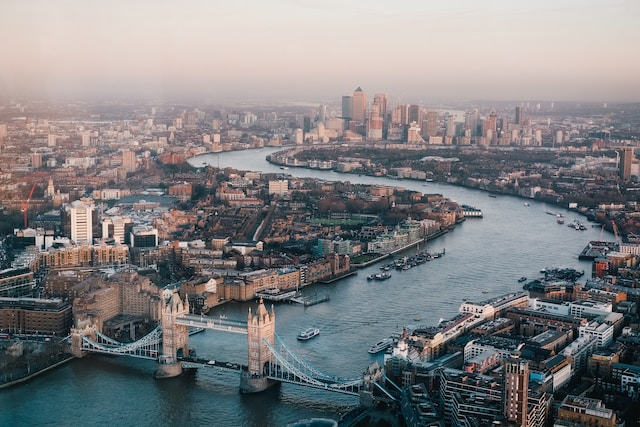Are you planning to move to London and looking for a place to rent? Finding a suitable flat in a city as big and expensive as London can be overwhelming, especially if you are a first-time renter. In this article, we will guide you through the process of renting a flat in London step by step, from setting your budget to signing the lease.
Table of Contents
- Determine your budget
- Choose a location
- Decide on the type of flat
- Start your search
- Online search
- Estate agents
- Classified ads
- Arrange viewings
- Make an offer
- References and credit checks
- Signing the lease
- Moving in
- Settling in
- Dealing with issues
- Your rights as a tenant
- Breaking the lease
- Renewing the lease
- Conclusion
1. Determine your budget
The first step in renting a flat in London is to determine your budget. London is an expensive city, and rental prices vary widely depending on the location, type of flat, and the amenities provided. As a rule of thumb, your monthly rent should not exceed 30% of your monthly income. Make sure to factor in other expenses such as utilities, council tax, and transportation costs.
2. Choose a location
The next step is to choose a location that suits your lifestyle and budget. London has many neighborhoods, each with its own vibe and amenities. Consider factors such as proximity to public transportation, local shops and restaurants, and safety when choosing a location.
3. Decide on the type of flat
There are many types of flats available for rent in London, from studios to multi-bedroom apartments. Decide on the type of flat that suits your needs and lifestyle. Keep in mind that larger flats are more expensive, and may have additional expenses such as utility bills and council tax.
4. Start your search
Once you have determined your budget, location, and type of flat, you can start your search. There are several ways to find a flat to rent in London:
Online search
Online platforms such as Rightmove, Zoopla, and SpareRoom are popular choices for finding flats to rent in London. These platforms allow you to search for flats based on your budget, location, and other preferences.
Estate agents
Estate agents are professionals who can help you find a suitable flat to rent. They can provide you with a list of available flats that meet your requirements and arrange viewings for you. However, keep in mind that estate agents charge fees for their services.
Classified ads
Classified ads in newspapers and online platforms such as Gumtree and Craigslist can also help you find a flat to rent in London. However, be careful when dealing with private landlords, and make sure to check the legality of the rental agreement.
5. Arrange viewings
Once you have found a few flats that meet your requirements, arrange viewings with the landlord or estate agent. Viewings allow you to see the flat in person and assess its condition and amenities. Make sure to ask questions and take notes during the viewing.
6. Make an offer
If you like the flat, you can make an offer to the landlord or estate agent. Your offer should include the monthly rent, the duration of the lease, and any additional terms and conditions. Negotiation is common in the rental market, so be prepared to compromise.
7. References and credit checks
Most landlords in London will require references and a credit check as part of the rental application process. Be prepared to provide contact information for previous landlords or employers, as well as consent for the landlord to run a credit check on you. Make sure you have this information ready before you start applying for flats. If you don’t have a credit history in the UK, you may be required to pay a higher deposit or provide a guarantor.
8. Signing the lease
Once the references and credit checks are complete, and the terms of the lease have been negotiated, it’s time to sign the lease. Before signing the lease, make sure to read it carefully and understand all the terms and conditions. If you have any questions, don’t hesitate to ask the landlord or estate agent.
9. Moving in
Once the lease is signed, it’s time to move in. Arrange for the keys and move-in date with the landlord or estate agent. Before moving in, make sure to take inventory of the condition of the flat and document any damages or issues.
10. Settling in
Settling into a new flat can take some time. Make sure to familiarize yourself with the flat and the surrounding area. Get to know your neighbors and local amenities such as shops, restaurants, and public transportation. It’s also a good idea to set up utilities and council tax payments as soon as possible.
11. Dealing with issues
If you encounter any issues or problems with the flat, such as maintenance or repairs, contact the landlord or estate agent immediately. They are responsible for maintaining the flat and ensuring that it is in good condition.
12. Your rights as a tenant
As a tenant in London, you have certain rights and responsibilities. Make sure to familiarize yourself with these rights, such as the right to a safe and habitable living space, the right to privacy, and the right to dispute resolution.
13. Breaking the lease
Breaking a lease in London can be expensive and complicated. If you need to break your lease, make sure to follow the terms and conditions outlined in the lease agreement. You may be required to pay a fee or give notice before terminating the lease.
14. Renewing the lease
If you wish to renew your lease, make sure to discuss the terms and conditions with the landlord or estate agent before the lease expires. Renewing your lease can be a good way to secure your living arrangements and avoid the hassle of finding a new flat.
15. Conclusion
Renting a flat in London can be challenging, but with the right knowledge and preparation, it can also be a rewarding experience. By following the steps outlined in this guide, you can find a suitable flat to rent in London and enjoy all that this vibrant city has to offer.
FAQs
- Can I negotiate the rent with the landlord?
- Yes, negotiation is common in the rental market in London.
- How much should I budget for utilities and council tax?
- It depends on the location and size of the flat. Ask the landlord or estate agent for an estimate.
- Can I sublet the flat to someone else?
- It depends on the terms and conditions outlined in the lease agreement. Make sure to read the lease carefully.
- What should I do if I have issues with the landlord or estate agent?
- Contact them and try to resolve the issue amicably. If that doesn’t work, seek legal advice.
- What happens if I don’t pay my rent on time?
- You may be charged a late fee or face legal action from the landlord or estate agent.







